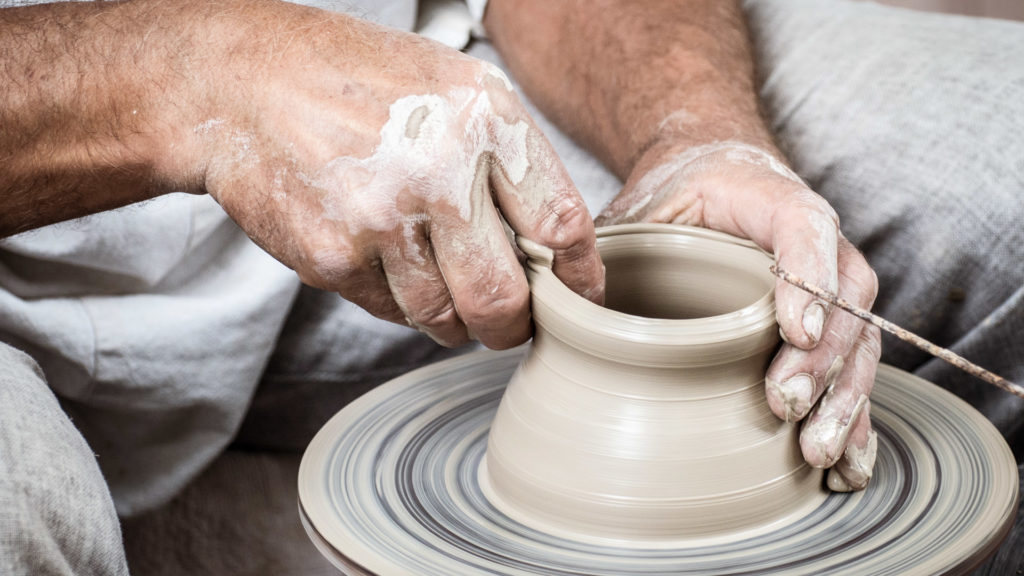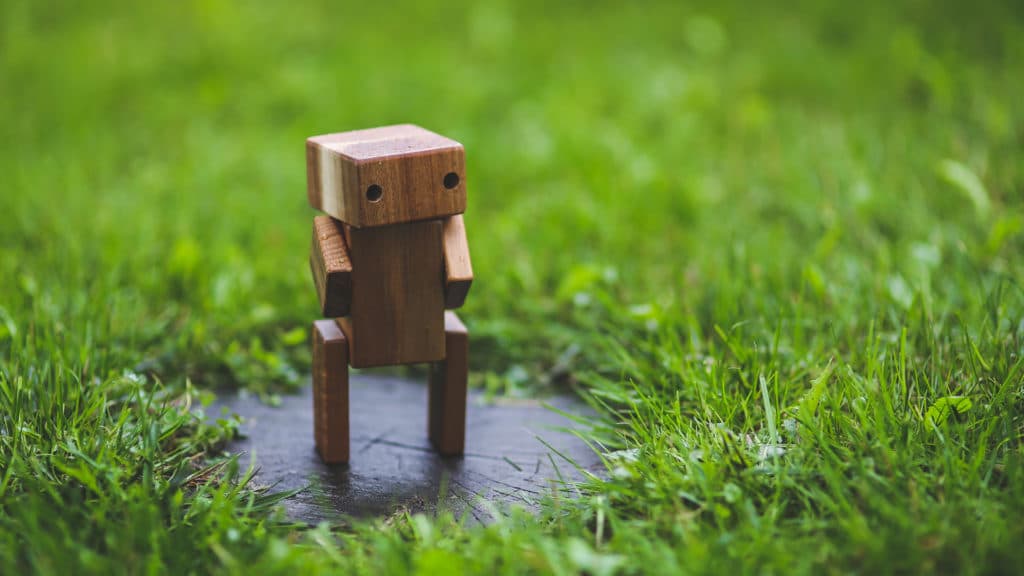John Henry, steel-driving man, is an American folk hero based loosely on an actual employee of the C & O Railway famed for his size and indefatigable spirit in a competition against a steam-powered hammer.
His story is venerated because he was a person who loved what he did so much that he literally killed himself to prove he was the best at it. In a time when mechanization was threatening his way of life, John Henry stood up to show there are some things that humans just do better.
I think a lot about man versus machine and constantly juggle my love for quick and cheap with my love for well-made and unique. In the design industry and the world of digital marketing this conflict arises all the time. Is the turnaround on this something we can execute effectively? Are we showcasing our best work at this cost? Should we just recycle this idea and save time? As Americans, we don’t really hand-make many things anymore. Etsy aside, the reverence for handcrafted cars, clothes, or furniture is a sentiment of the past. That value isn’t one we place highly, especially against things that look handmade or vintage.

Ours is a society of rapid-gratification. One that is always ready for the newest, shiniest version. Yet, we expect flaws in products given the price we pay and are accustom to paying for the warranties on the things we buy. Think about that for a second. It has become so ingrained in us that the things we buy will fall apart, that we pay more to excuse the maker for getting away with that. We expect to see other people in the same shoes, using the same phone, driving the same car, and brands expertly play into that. We are fascinated with crafts and the art of handmade goods because they have become rare and more valuable in today’s post-industrial digital world. Try to find a Millennial who doesn’t ironically knit, brew their own beer, or design jewelry. Go ahead. I’ll wait.
Handmade is a value we have let go. And while, thankfully, we’re no longer bound to be the heir to our father’s trade, or married off to a tradesman of comparable social standing, there are things from that era that I miss. My grandfather worked hard in his life and came out the other end with very little change in his pocket. But if you go to his house, what do you find? A London Fog raincoat he’s had since my dad was my age; an Amish-made grandfather clock, I-kid-you-not, from his grandfather; a fishing rod that had to have been used by one of the Apostles. And they work. Well. And for him that’s all that matters.

It seems in losing interest in handcrafted goods we’re demonstrating a lack of interest in the things associated with that as well. Valuing individual expression. Valuing something that will pass through life with you and maybe someday into your children’s lives. Valuing the middle class. Valuing individuals and their livelihoods.
I know, I know. Hear me out, though. This is not an article denouncing the advancement of technology in industry and robotics. There would be far more children in developing nations dying in factories without innovation and automation, but that’s another article.
We’re not luddites here at Echelon. Far from it. Our team is obsessed with new technology, to the point that it’s borderline obsessive. Innovation is baked into everything we do, but not at the expense of the human touch or hours pouring through ideas tailored to each client, to come up with the best way to tell their story. For us, the experience of hand-making something isn’t dated. Rather, a successful project is about merging the latest and coolest innovations with an attitude of compassion and collaboration. And, sure, there are cheaper shops that can offer a prefab show package, a machine-built popup banner, digital content with recycled graphics, music, and b-roll, but we believe in having a hand and an eye and sometimes a little sweat on everything we make.. And we believe in being there at your event to make sure you are beyond satisfied and the exhibit looking better than expected is the last thing on your mind. We believe in making your customer fall in love with your brand in a way that is completely new every single time.
John Henry’s story sadly doesn’t end with him growing old and laughing at the railroad barons from a rocker on his front porch. Instead, it’s said that he wore himself out, pushing too hard and caring too much in that famous competition, and in the end it took him. He died of exhaustion a few days after defeating the steam-powered hammer, surrounded by those he loved. Truthfully, though? Beating the machine, winning against all odds, ending a life of caring and dedication with one final victory—a victory so great it took, literally, everything he had. Yeah, I don’t know that that sounds all that bad.

